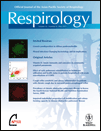Cough reflex sensitivity and airway inflammation in patients with chronic cough due to non-acid gastro-oesophageal reflux
ABSTRACT
Background and objective: The aim of this study was to explore the pathogenesis of chronic cough caused by non-acid reflux.
Methods: Seven patients with chronic cough due to non-acid reflux, 12 patients with chronic cough due to acid reflux, 10 patients with gastro-oesophageal reflux disease without cough and 12 healthy volunteers were recruited for the study. All subjects underwent oesophageal multi-channel intraluminal impedance measurements combined with pH monitoring, and assessment of cough reflex sensitivity to capsaicin and induced sputum cytology. The concentrations of substance P, mast cell tryptase, prostaglandin D2 and histamine in induced sputum were measured by ELISA.
Results: Cough threshold C2 and C5 did not differ between patients with chronic cough due to non-acid or acid reflux, but the values were significantly lower than those for patients with gastro-oesophageal reflux disease without cough and healthy volunteers. Weakly acidic reflux episodes were obviously more frequent in patients with chronic cough due to non-acid reflux than in the other three groups. Sputum substance P and mast cell tryptase concentrations were remarkably increased in patients with chronic cough, but were similar for those with cough due to non-acid or acid reflux. There were significant inverse correlations between substance P levels and cough threshold C2 or C5 in patients with cough due to non-acid or acid reflux, and between mast cell tryptase levels and cough threshold C2 in patients with cough due to acid reflux.
Conclusions: Chronic cough due to non-acid reflux may be related to cough reflex hypersensitivity caused by neurogenic airway inflammation and mast cell activation, in which weakly acidic reflux is possibly a major factor.




